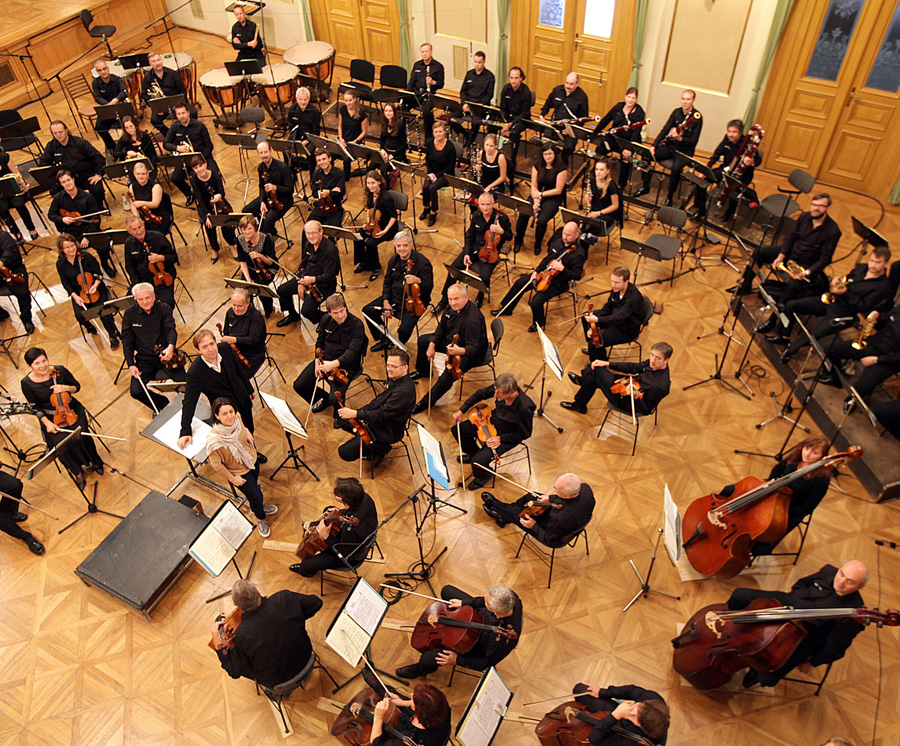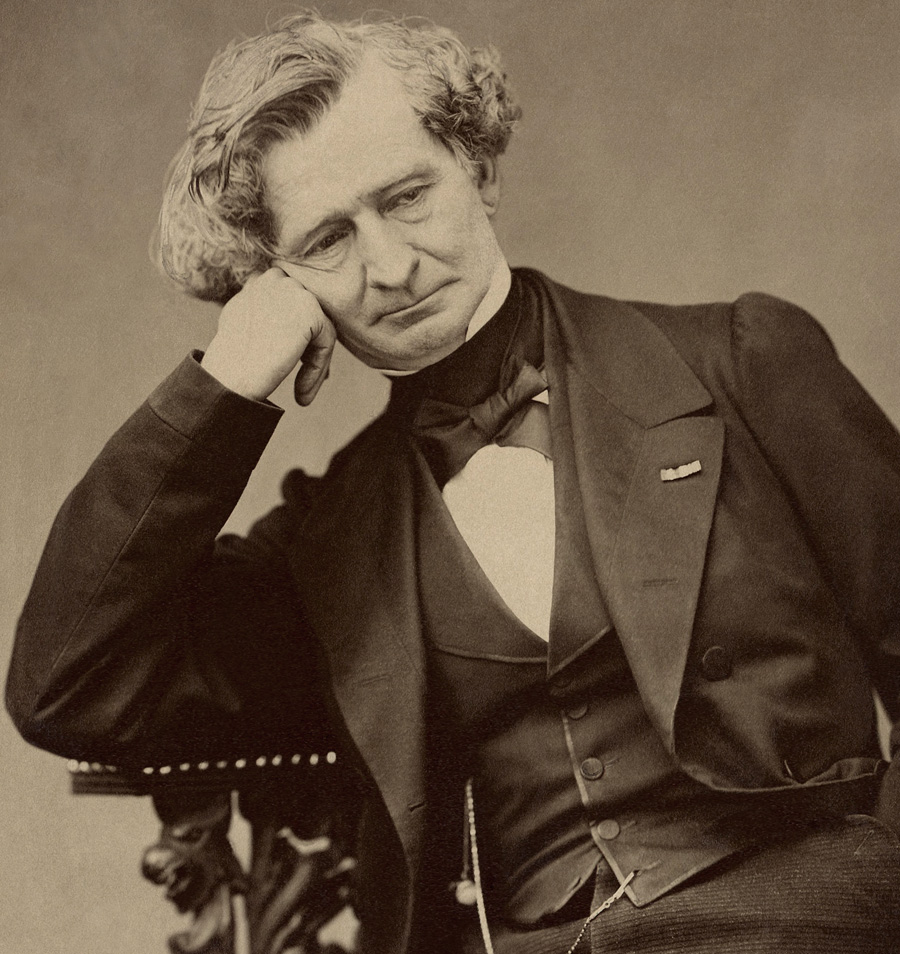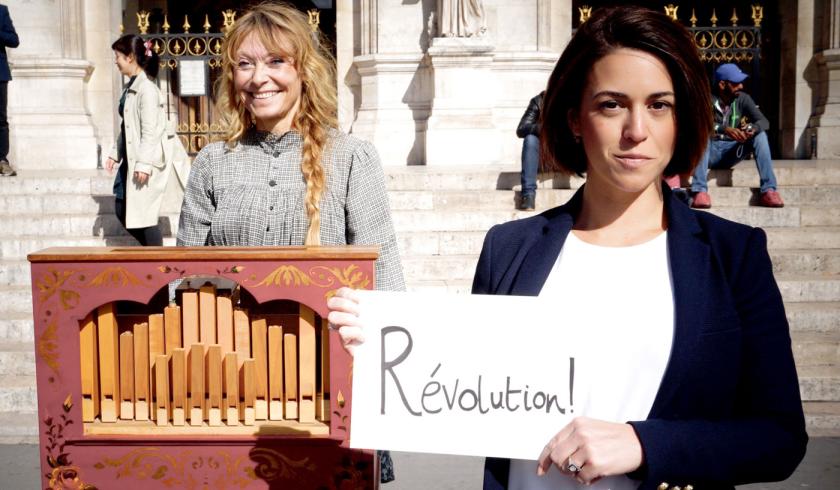Suzy Klein, writer and presenter of this three-episode series, is a trained musician and a ubiquitous presence in cultural programmes across a wide spectrum. This opening film, "We Can Be Heroes", was an engagingly populist piece about a complicated subject as she enthusiastically described a major cultural shift in the way musicians and composers engaged with patrons and audiences across Europe.
The catalyst was a combination of the industrial and political revolutions that began to transform European society and culture 200 years ago. In the course of this initial journey we visited Vienna, Paris, Leipzig, and Weimar, among others, hearing Klein's argument for the universality of music, across boundaries and languages. The Brno Philharmonic (pictured below) performed the orchestral extracts.
Composers and musicians, Klein argued, became not only the celebrities of the age, but even influential politically. New industrial techniques could mass-produce instruments, and as we were to see, the most celebrated musician and composer of the day Franz Lizst, whose immensely physical attack on his pianos actually damaged them, probably inspired substantial improvements in the capabilities of the instrument. His concerts caused the female members of his audience to swoon with delight (though one rather cynical interviewee wondered whether it was the tight corsetry so fashionable at the time), and even his cigar butts and used wine glasses were swooped upon by besotted ladies. It was Liszt who pioneered the notion of a whole evening devoted only to piano music; in 1840 he performed 1,000 concerts across Europe, and amassed a fortune.
 The astonishing shift in the status of music had began with Beethoven; Vienna came to a standstill at his funeral in 1827, and the day he was buried was declared a national holiday. His Eroica symphony at first celebrated, as Klein showed us theme by theme, the political and secular freedoms espoused by Napoleon. But when the little Corsican, himself of relatively modest origins, turned dictator and emperor, Beethoven famously erased his dedication. In December 1808, in the new and opulently decorated Theatre an der Wien, Beethoven famously staged a four-hour programme of his own music, including the Fifth and Sixth symphonies, for an audience of 2000-plus.
The astonishing shift in the status of music had began with Beethoven; Vienna came to a standstill at his funeral in 1827, and the day he was buried was declared a national holiday. His Eroica symphony at first celebrated, as Klein showed us theme by theme, the political and secular freedoms espoused by Napoleon. But when the little Corsican, himself of relatively modest origins, turned dictator and emperor, Beethoven famously erased his dedication. In December 1808, in the new and opulently decorated Theatre an der Wien, Beethoven famously staged a four-hour programme of his own music, including the Fifth and Sixth symphonies, for an audience of 2000-plus.
No longer were musicians servants of the aristocracy. They had become entrepreneurs in control of their work and how it was presented, no longer constrained by the whims of their patrons. Beethoven, walking in the park with Goethe (imagine the conversation!), charged through a crowd of Habsburg aristocrats blocking the path, while Goethe bowed and chastised his friend for his rudeness. But, remarked the composer, there are many Princes but only two of us.
Middle-class salons hosted gatherings for music and wine, and for intellectual discussions and exchanges of ideas. Here Schubert, chamber music genius and composer of more than 600 songs, flourished, and here was Suzy Klein accompanying Ian Bostridge singing of the hurdy gurdy man from Winterreise. So subversive could these salons seem that in 1820 Vienna’s secret police raided one and shut it down, Schubert getting away with a mild mauling while others were jailed.
 Klein’s point was that, in the broadest of generalisations, order, progress and logic could describe the 18th century Enlightenment, while Romanticism was chaotic, anti-authoritarian, glorified the heroic individual and adored nature. The apotheosis of the rampant melodrama of the individual was the amazing life of Hector Berlioz (pictured left), who put all his unrequited longing for the English actress Harriet Smithson into his Symphonie Fantastique; he had stalked her for four years, and she was so entranced by the passion behind this musical tribute that, reader, she married him.
Klein’s point was that, in the broadest of generalisations, order, progress and logic could describe the 18th century Enlightenment, while Romanticism was chaotic, anti-authoritarian, glorified the heroic individual and adored nature. The apotheosis of the rampant melodrama of the individual was the amazing life of Hector Berlioz (pictured left), who put all his unrequited longing for the English actress Harriet Smithson into his Symphonie Fantastique; he had stalked her for four years, and she was so entranced by the passion behind this musical tribute that, reader, she married him.
And then there was Paganini, the virtuoso violinist of all time, whose compositions are still almost unplayable in their demands for speed. He was perhaps the first musician to reach the equivalent of rock star celebrity, and it was thought that his staggering skill meant he had a pact with the devil. For eight concerts in 1840 he earned as much as Schubert had in a lifetime.
And finally to the composer of 39 operas, Gioachino Rossini, who retired in his thirties to devote the rest of his long life to wine and women. A man of appetite, geniality, and ease (he inspired the Tournedos Rossini, a recipe involving beefsteak, truffles and foie gras), he wrote The Barber of Seville in three weeks, and earned the equivalent of £5 million in a five-month stay in England. Sharing an audience with George IV with the Duke of Wellington, Rossini remarked that His Majesty was standing between the two greatest men currently in England.















Add comment